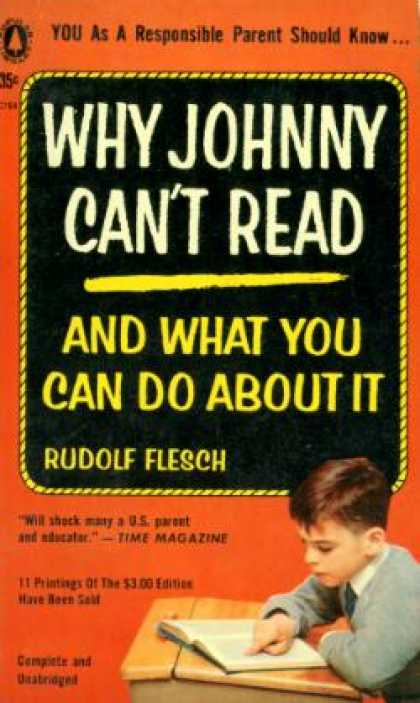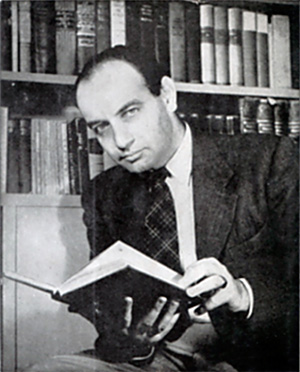Reading heroes: the Fantastic Mr Flesch – phonics warrior and Plain English pioneer (1911-1986)
Unless you’re a word-nerd, like me, you probably haven’t heard of this gentleman. But he’s done us all a great service.
I first stumbled upon Flesch’s writing when I was working for an English law firm in Hong Kong. It was post-handover, and my firm was trying to modernise itself by training all its lawyers to use Plain English when drafting legal agreements.
I was reluctant: I’d spent a good ten years training myself up on all the “hereinafters”, and “withnesseths”, and “inter alias” and other legal mumbo jumbo, and didn’t want to let them go (they made me feel smart). I was convinced Plain English and the precise use of language were incompatible – that the Plain English movement was a passing fad.
Then I read Flesch’s How to Write Plain English: A Book for Lawyers and Consumers, which changed my mind. I moved on to “How to write, speak and think more effectively”, which changed the way I speak and write. Then I read Flesch’s most famous book: Why Johnny Can’t Read: And What You Can Do about It (1955).
By reading Johnny, I became aware of the debate between educators known as “the reading wars”. The trend in some parts of the USA in the 1950s was for children to memorise words by sight, sometimes called the “look-say” method. (Vestiges of this approach are still used by some teachers and literacy tutors when they drill children with pages of low frequency “sight words” or instruct kids to “look, cover, write”.)
Flesch argued that memorising words individually is inefficient and ineffective and advocated a return to the traditional teaching practice of using the phonics (sounds) method – that is, teaching kids to read by sounding out words. This is an approach endorsed by the National Reading Panel in their 2000 report, and the approach we take at Banter Speech & Language to help kids with reading difficulties.
Mr Flesch’s other contributions include developing a number of readability tests, still used today to assess the complexity of a piece of writing. I use the Flesch-Kincaid Reading Ease test to make sure my blog entries are easy to read and that I haven’t slipped back into old bad (lawyer) habits…
Related articles:
- Is your child struggling to read? Here’s what works
- 25 rules of effective writing from a plain English legend
- Alan Siegal – plain English – striving for simplicity
- Want your writing to sound smarter? Get rid of pointless, long words
Images: http://tinyurl.com/qbsq94z and http://tinyurl.com/oxwveto

Hi there, I’m David Kinnane.
Principal Speech Pathologist, Banter Speech & Language
Our talented team of certified practising speech pathologists provide unhurried, personalised and evidence-based speech pathology care to children and adults in the Inner West of Sydney and beyond, both in our clinic and via telehealth.










 (F516): Roger Saves the Day? A Palatal Mixed Movement Story
(F516): Roger Saves the Day? A Palatal Mixed Movement Story